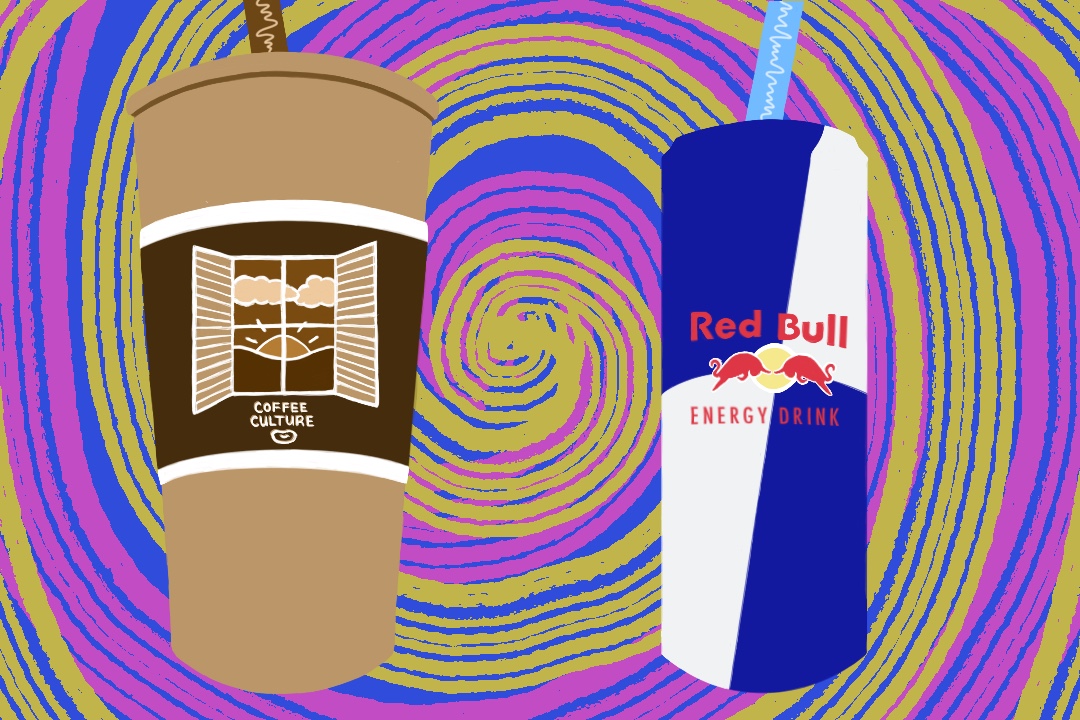Admittedly, it’s a bit hypocritical and redundant of me, an avid coffee drinker, to scrutinize the negative health effects of energy drinks. Energy drink defenders will cry out that a cup of coffee often contains more caffeine than the average energy drink, while coffee fans will parry with the fact that energy drinks contain much more sugar than their own beloved beverage. And thus the battle will continue, and my arguments will be lost in the turmoil.
However, while examining the stale statistics flung from one side and then the other, I noticed a different idea emerging: the question of whether it’s healthier to consume energy drinks or coffee might essentially be boiled down to their respective branding.
A drink or two for you
Regardless of their relative caffeine and sugar content, it’s undeniable that the two beverages are consumed by different people, under different circumstances, and in different ways. Teens and young adults are the greatest consumers of energy drinks, while people over 70 drink the most coffee. Moreover, 25 per cent of college students mix energy drinks with alcohol, but mixing coffee and alcohol honestly sounds gross.
The truth is that energy drink companies don’t compete with coffee companies — at least not directly. With their various colours, fun flavours, and excitement-filled commercials, energy drink branding resembles the highly criticized marketing strategy of vape manufacturer Juul, give or take a Nickelodeon advertisement. Energy drinks are not just popular among teens — the drinks’ advertisements seem to specifically target them.
Regulators have been forced to take notice since the rates of emergency room visits related to energy drinks have started increasing. Despite energy drink companies’ arguments that they should be regulated no more than coffee or pop, they conveniently ignore that they’ve combined the consumer appeal of two very differently perceived products into one drink.
Beware of branding
The dual image that energy drinks form have a dangerous result. More intense than pop, yet branded in ways that are similarly innocuous, energy drinks look like the perfect way to amp up a party. Unlike coffee, they beg to be consumed at night and in high-energy situations.
The consequences are startlingly severe. The 25 per cent of college kids that mix energy drinks with alcohol are also more likely to report unwanted and unprotected sex, drunk driving, and alcohol-related injuries compared to the 75 per cent who don’t mix drinks. The caffeine counteracts the alcohol, making you feel less drunk and a little more confident than you probably should be.
So should you drink energy drinks? Honestly, I’m not sure. Energy drinks themselves are not directly at fault when a college student decides to mix them with alcohol. And they’re not at fault when someone decides to drive while drunk.
However, the way they’re branded is likely to make some people think that those decisions are more appropriate than they actually are. Regardless of the health consequences, the way people perceive a product will always affect how they consume it and, consequently, what it does to their bodies.


